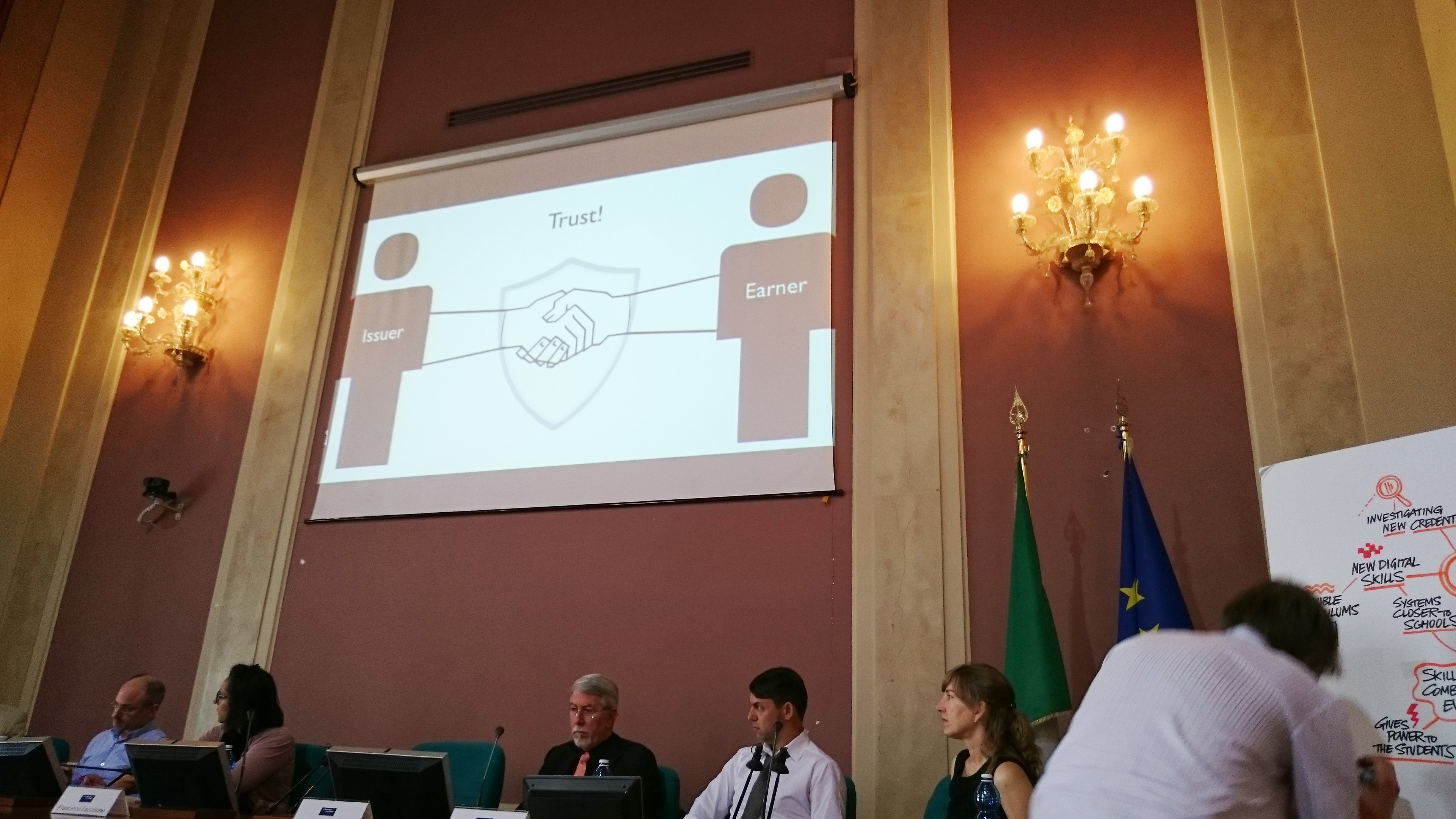#OPENBADGES and #ePORTFOLIO presented in Rome
Education is power.
It is not only a famous quote of philosopher Francis Bacon. It’s also the key message of the international conference “Open Badges and ePortfolios” that was held at the italian Ministry of Education, University and Research the latest may the 8th. A meeting dedicated to the international good practices to build the next step of education and work in Italy.
Speakers: Thomas Black (Associate Vice Provost of Stanford University), Carla Casilli (Director of Badge Alliance USA), Serge Ravet (Badge EU project), Simon Whittemore (Head of Change, JISC), Francesco Luccisano and Donatella Solda Kutzmann of Miur, Simone Ravaioli of CINECA. Moreover professors, innovative companies and associations.
All together, with different backgrounds and international benchmarks, to face the challenge of a world of work and culture in constant change: how can we ensure both Lifelong learning and Lifelong earnings? How do we transform learning and permanent education into constant professional growth? And, most of all, which are the most efficient and useful tools in order to allow this process to happen?
The answers are many- as many are the stories and the best practices recounted. And the questions are many since it is such a ground-breaking topic.
A matter of trust
First of all, the tools: Open Badges have the quality of being flexible, interconnected and dynamic, and to be able to trigger viral phenomena and episodes of serendipity: almost a new personal social currency- that can be personalized and shared, thanks to the open source model and to the specifics of metadata that allow to fill badges with meanings.
Starting from these features, we can create a digital and innovative curriculum- the e-portfolio. The information on it will be reliable, verifiable and will provide evidence of skills accessible in the work environment.
But tools are not sufficient, certifying is not enough, developing a specific technology and creating the right interface is not enough to be able to use it. There are two other essential characteristics in order to make open badges the tools to bring “education is power” to life: flexibility and reliability.
Flexibility and reliability are indeed the essence of the economy of information. And, as well as information, they rely on a very powerful technological and philosophical infrastructure : trust. The trust network.
The challenge is to fill the gap, certify and share skills, knock down the distances between universities and business companies. This challenge aims to create a new trust model between issuer, learner and employer. Because projecting a new technology into the future means creating a new paradigm.

Innovation for Italy
The Open Badges revolution, before being a technological revolution, is a cultural one. And we are positive that Italy - with its innovators, its pragmatic dreamers and its crave for future - will be able to win it.
The panels' audience has already detected some ways in which these tools respond to daily issues of education and work professionals in Italy: the recognition of the non formal skills, the valorization of those skills that the individuals develop out of the formal educational framework, the opportunities to catch those ever-changing skills that constantly emerge as demands from the work environment… these are all the themes we are looking for an answer to. An answer that is the right compromise between reliability and flexibility. And Open Badges could be this answer.
In order to make this answer a reality, the speakers of the panels accepted to form the steering committee of Bestr: the theoretical and scientific guidance for the platform that intends to make Open Badges a reality in everyone’s life, a simple solution to real problems. It is a philosophical challenge, yet a challenge that wants to offer very concrete and practical opportunities to all those individuals that are looking for the right way to evolve professionally and to show the world what they can do. For those who want to be involved in more and more challenging work environments and to be internationally competitive.
Because, as George Bernard Shaw once said:
some people see things as they are and say: why? Some others dream things that never were and say: why not?